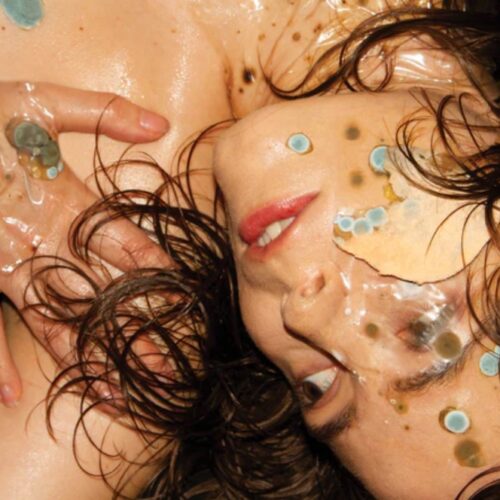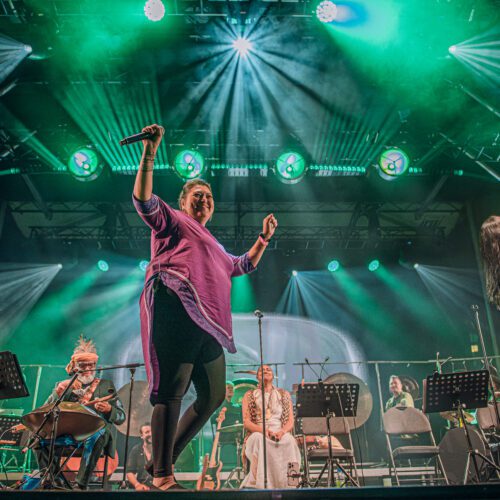Montrealer Kee Avil’s second album evokes the precariousness of today’s life, the blurring of communication and direct meaning, profoundly altered in a digital environment where interactions and the deluge of information furnish a large part of daily human activity.
When I attended her concert a few months ago at Centre Phi, I fell out of my chair. This woman’s poetics and intellectual scope are at the service of her most visceral emotions, and we’re on the opposite end of the spectrum from a pamphleteering approach: affect is at the heart of her artistic discourse.
But this is about music, and Kee Avil takes us down paths that are sometimes dark, sometimes metallic gray, but sometimes luminous. Her synthesized music leans towards noise, minimal glitch or old-school electroacoustics, but these electronic frames are at the service of the voice and acoustic and electric instruments such as guitar, bass, violin (or percussion on stage), on the sole condition that these frames are at the service of expressivity and feeling.
So we have to follow this dreamlike, sleepwalking journey, as if we had to wake up and determine its symbolism and meaning. This project has nothing to do with entertainment, beauty and ugliness (see the pustules of the main character on the cover of the opus) rubbing shoulders as in life, the noisy strangeness and the sweetness of the voice, the hammering and the sighing, the squeaking and the cooing.
Somewhere between Polly Jean Harvey (for rock exploration) and Laurie Anderson (for computer relevance, storytelling and reflection), Kee Avil can do without comparisons. Her post-punk and experimental postures resemble few or nothing else, which in itself is a guarantee of profound singularity. Her live show last spring was one of the best performances in Montreal this year. The album is a little less eloquent, but the approach deserves 2024’s highest marks.
























